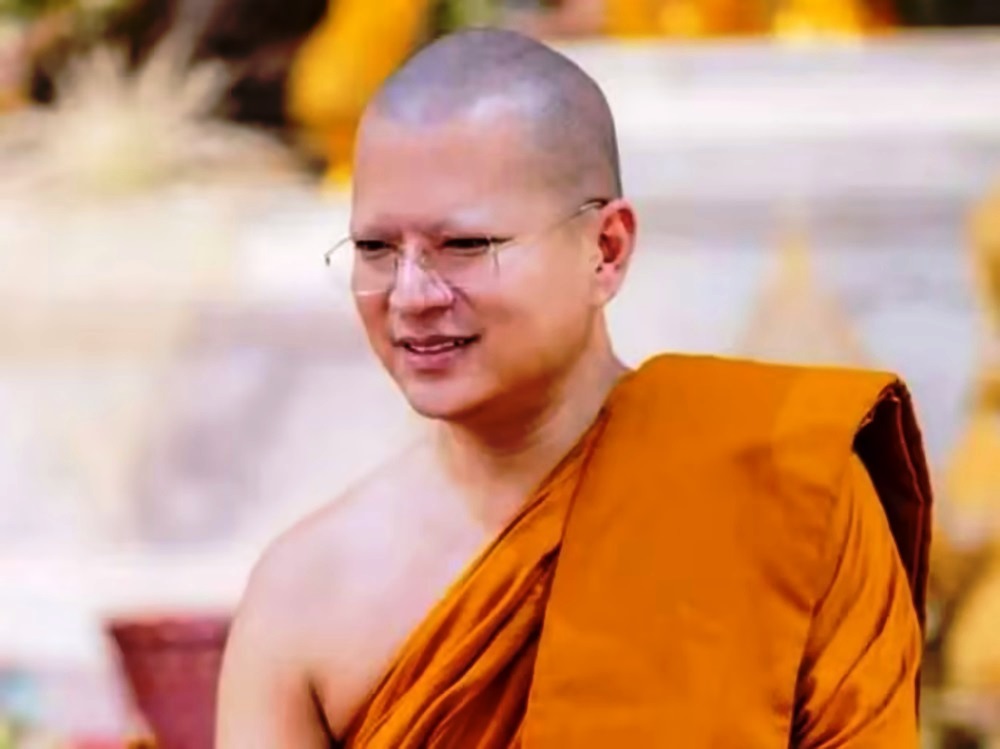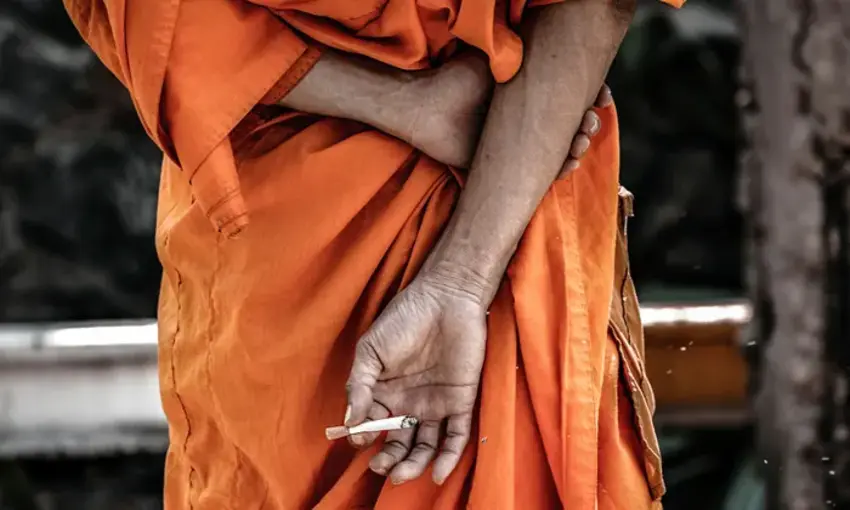A former senior monk of Wat Pa Dhammakiri in Nakhon Ratchasima, Thailand has received a 468-year sentence for his role in an embezzlement scheme worth about 300 million baht (US$8.3 Million).
The Central Criminal Court for Corruption and Misconduct Cases issued the verdict in response to prosecutors’ charges against Phra Ajarn Khom, the former abbot of Wat Pa Dhammakiri in Pak Chong district, and eight accomplices for their roles in the case.
The previous abbot, now known as Khom Kongkaeowas, is the first defendant.
The other eight include Wutthima Thaomor, the temple’s previous abbot; Khom’s sister, Juthathip Phubodiwarochuphan; his chauffeur, Boonyasak Patarakosol; and five defrocked monks: Boonsong Panpuwong, Bundit Yoicha, Nathapat Tangjaisanong, Boonluea Phothong, and Thanakrit Yotsurin.
The court determined that Khom collaborated with the defrocked monks to plunder temple donations. He kept the money in his bank account, which only his sister could withdraw funds from. A total of 76 withdrawals occurred.
The former abbot instructed his sister to retain some of the cash at his home, and authorities later seized 51.4 million baht. Khom also instructed other ex-monks to hide some assets outside the temple.
Police later uncovered 1,455 items, including cash and assets totaling 299.5 million baht. The court found him guilty on 78 counts, each carrying a six-year penalty, and sentenced him to 468 years.
Wutthima was found guilty on 78 counts, with a total sentence of 312 years. Juthathip pled guilty to 77 counts and received a 308-year prison sentence.
Thai law allows for a maximum sentence of 50 years in prison. Because of their cooperation, the other defendants had their sentences reduced from three to two years.
Monks Behaving Badly in Thailand
Monks inspire reverence, knowledge, and spiritual commitment in Thailand, a country with deep Buddhist roots. But something less admirable about becoming a monk—improper behavior—has come to light in recent events.
People all throughout the world, not just in Thailand, are scratching their heads about this peculiar behavior.
Instances of wrongdoing have surfaced, casting doubt on the idealized image of monkhood, despite the fact that monks are usually known for their austere lifestyle and dedication to moral behavior.
Within the Buddhist community, there have been demands for change and stricter regulation in response to a number of instances of misconduct, ranging from the use of showy equipment to involvement in scandals.
Cases of misconduct by monks illustrate the difficulties religious institutions face in upholding integrity and ethical norms, notwithstanding the reverence and awe that Thais have for monks.
Modern religious practice is fraught with new challenges related to responsibility, transparency, and the interplay between spiritual power and human frailty.
All eyes are on these transgressions by Thai monks, which bring to light the universal battle to find common ground between ideals of spirituality and the limitations of human nature.
Research into this occurrence provides insight into the moral and spiritual challenges faced by Buddhist practitioners, as well as their insatiable quest for authenticity.







